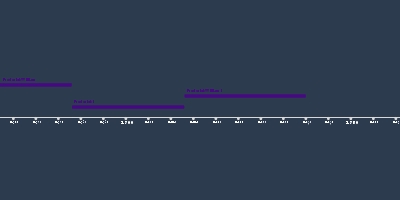The Cold War (1 jan 1947 ano – 1 jan 1991 ano)
Descrição:
Soon after World War II ended, the U.S. and the USSR engaged in the Cold War, and Europe was split into the East and West Blocs.Communist parties were taking control in Bulgaria and Poland. Soviets formed coalition governments that included Social Democrats and other leftist parties but reserved key government posts for Moscow-trained Communists. Discussions over elections in Soviet areas were at the forefront of the Potsdam Conference in July 1945. Roosevelt died and his successor Harry Truman demanded immediate free elections throughout central and eastern Europe. Stalin refused. Mutual distrust, security concerns, and antagonistic desires for economic, political, and territorial control began to destroy the former partnership.
Stalin wanted to establish a buffer zone of sympathetic states around the USSR and expand communism and the state itself. He believed only Communists could be dependable allies and that free elections would lead to independent and possibly hostile governments on his western border. The United States did what it could to maintain democratic capitalism without war, and showed their willingness to use thier influence to maintain predominance.
In September 1945, Truman cut off aid to the USSR. In October he declared the U.S. would not recognize any government established by force against the will of its people. In March 1946, Churchill said an “iron curtain” had divided Europe.
Soviet support varied from country to country. Communist politicians in Romania, Bulgaria, Poland, and Hungary repressed liberal opponents and engineered phony elections. They got rid of noncommunists from the government and established a one-party dictatorship by 1948. Czechoslovakian Communists were successful in open elections and formed a coalition government until they began Stalinizing in early 1948, which contributed to Western fears of limitless Communist expansion. Some Communists found success in Italy and France.
The U.S. responded to this with the Truman Doctrine, which aimed at “containing” communism to areas already under Communist governments. The U.S. successfully provided aid to anticommunist forces in the Greek Civil War. The Soviets’ use of their own atomic bomb increased fears of a nuclear war The U.S. engaged in an anticommunist crusade and poured money into defense spending and testing nuclear weapons.
Adicionado na linha do tempo:
Data:
1 jan 1947 ano
1 jan 1991 ano
~ 44 years
